FCPS and school districts across the state have been pushed to examine and reevaluate their regulation of student phone use during the school day. This reevaluation follows a trend across the country of school districts implementing updated regulations regarding the use of cell phones and newer technology such as AI tools.
The move is also in line with the State government’s interests, with Glenn Youngkin issuing an executive order calling on the creation of cell phone-free school environments and the Virginia Senate and House passing SB738, a bill that “Directs each school board to develop… age-appropriate and developmentally appropriate policies relating to the possession and use of cell phones by students on school property during regular school hours.”
But FCPS’s moves to develop a new cell phone policy predates state action with the school board making a follow-on motion during their May 9, 2024 meeting. The follow-on motion instructed the superintendent to develop a pilot program testing the effectiveness of storage units and propose a new policy aftering collecting “stakeholder input”.
Pilot Programs
Starting this school year, several high schools and middle schools have been participating in pilot programs. Participating high schools require students to place their phones in class storage compartments, such as wall holders or lunch-box like bags. Middle school students were given Yondr pouches to lock their phones. The magnetic pouches can only be opened at the end of the day with a special magnet.
In a School Board Work Session last Tuesday, March 11, 2025, the results of these programs were presented to the school board through the shared experiences of principals managing the program in their schools.
All the principals expressed similar positive feelings about the program, reporting that compared to last year, there have been fewer fights, fewer instances of cheating, and greater engagement in classrooms. Amanda Burke, principal of Edison High School, reported that 33 fights involving no injuries had occurred last year, but so far this year, only 5 have occurred. Of the fights this year, four took place in the halls and one in the cafeteria.
Principals also shared that while teachers were excited and students were not, they’ve heard about the positive impacts from both students and teachers.
“With teachers, when I told them we were going to be part of this pilot in the beginning of the school year; literally standing ovation. They were cheering, so excited,” Ellen Reilley, McLean High School principal, said.
Then, problems began to arise.
“This teacher is going to be consistent and this teacher is going to be the fan-favorite,” described Reilley. “What happens is, they start falling one by one by one.”
Teachers stopped ensuring that students placed their devices in the storage units, no longer incorporating it in the class routine. Students would instead keep their phones on their person or in their bags, then bring them as they go out into the halls.
“Teachers don’t want the phones in their classroom, but they also don’t want to monitor it,” Reilley said.
The halls and consistent enforcement are a problem shared across pilot schools, with storage units used less and phones being used more during supposed ‘bathroom breaks’.
“I did a survey at our February staff meeting asking staff how they felt this was going in the classrooms and outside of the classrooms. 89% of our staff felt it was going very well in the classroom. Only 49% felt it was going well in the hallways. And I would completely agree,” Rolon said.
Despite the limitations of the program thus far, there have been some measures created in particular schools to ensure the enforcement of cell phone bans. In Robinson Secondary, principal Tracey Phillips has had to add some additional components to the Yondr system, and to the wall storage units.
To ensure the security of high school students’ devices during PE, locking carts were purchased to hold the phones for the period. Middle school students also sometimes try to evade the loss of their device by placing burner phones or empty cases into the Yondr pouches. To better support the teachers encountering this issue, Phillips created an email for teachers to contact, thereby allowing admins to come address the violation without the teacher needing to make a call.
Of the seven principals invited to the meeting to speak, only one was from a school that was not participating in a pilot program, but instead was enforcing the existing cell phone policy in a more active manner.
Herman Mizell, principal at Langston Hughes Middle School, presented a storage-free perspective.
“I go back to being visible, vigilant; making sure that your expectations are clear, consistent, and that teachers understand it,” Mizell described.
Mizell felt that his students had been taking the restriction well. Teachers are instructed to contact administrators to have devices used in violation of the policy confiscated and only occasionally the school encounters “a stubborn, recalcitrant student who’s determined to use the cell phone constantly.”
The principals agreed that restricting the use of cell phones had improved the school environment greatly.
“It is a game changer. Our dialogues in classes are higher, the amount of laughter that you hear is higher. The kids are definitely engaged with each other in a way that I have not seen in my career,” Sean Rolon, principal at Justice High School said.
The Proposed Policy
The Chief Equity Office, CEO, also presented a proposed policy to the school board during the work session. The proposal is similar to existing policy, but further cracks down on the use of phones during the school day. At all grade levels, phones cannot be used for instructional purposes. Phones and related devices, such as earbuds, airpods, and smart watches, are banned from bell-to-bell, or the start of the school day to the end. Students cannot be suspended or expelled for violating the policy. The only exceptions to the bell-to-bell ban would be for 504s, IEPs, medical needs. High schoolers would have the benefit of permitted use during lunch in a space designated by the school principal, but otherwise be totally restricted. Rather than implement a required storage unit for the county, the CEO recommended that principals be given the option to request specific units if they deemed it necessary, granting flexibility across the county.
Every violation of the policy faces confiscation, but repeated incidents result in additional consequences, such as destination.
At first violation, students have their device confiscated, to be recollected at the end of the school day. Parents are notified of the incident and it is recorded in SIS.
At the second violation, students have their device confiscated, to be recollected at the end of the school day. Additionally, the student will face a one day detention and may be summoned for a Student/Admin conference or have their parents contacted for a Parent/Admin conference. The incident is once again recorded in SIS and parents are notified.
At the third violation, students have their device confiscated, to be recollected at the end of the school day. The student’s parent will be asked to come to collect the phone, but if this is not possible, then the student will be permitted to take it at the end of the school day. The student will face a two day detention, may have to have a Student/Admin, Parent/Admin, or Restorative Justice conference, and again be recorded in SIS with parent notification.
For the fourth violation and beyond, students have their device confiscated, to be recollected at the end of the school day. They will face a three day detention, potential Parent/Admin or Student/Admin conference, and be referred to an MTTS (Multi Tiered Systems of Support Team) for behavioral goal setting and progress monitoring. Most notably, the student will also be required to turn over their phone to the front office at the start of the school day for 5-10 days.
The CEO clarified during the meeting that the provision barring suspension as a punishment does not mean no cell phone-related violation can be punished with suspension or expulsion. A higher caliber SR&R violation can result in suspension, regardless of if a cell phone violation was committed in conjunction, such as the use of a cell phone to distribute or recreate copies of test answers.
“The proposed cell phone policy reflects the overwhelming input from students, families, teachers and administrators who have shared their perspectives on how cell phones impact learning,” Dr. Nardos King, chief equity officer said.
King stated that the CEO’s recommendation to allow principals the option to request storage units for their school was reflective of student input. 72 percent of student respondents to a survey said that “FCPS should not create a cell phone storage policy” for high school students.
The policy is also designed so that phones are not held by the school overnight, with students being permitted to collect confiscated devices from the front office of their school at the end of the school day. This differs from some cell phone policies that require parents to come and collect student devices.
While only being proposed, the portions of the policy may be adopted in whatever final revision is agreed upon by the school board, thus providing a suggestion of future enforcement within FCPS and subsequently West Potomac.
“Change is never easy,” King noted. “But when it is driven by shared vision for improvement, it is powerful.”
What School Board Members Had to Say
“I will definitely be leaning into the recommendation that seems to serve the purpose of the principals that are sitting here talking with us about what they need to have a successful school where students are engaged [and] teachers don’t feel the burden of having to be the enforcers in the way that they have been without the storage process,” Ricardy Anderson, school board representative for the Mason District said.
Her comments signalled a favor towards the use of storage units in the cell phone enforcement, stronger than the CEO’s general suggestion of leaving storage units as optional. Ilryong Moon, an At-Large school board member, had a similar message.
“Among the different options, which one is going to make it easier on the part of the staff to be ‘visible, vigilant, and consistent’?” Moon questioned.
“…I still feel giving them storage would make their job easier than not having [it] and still expecting them to be consistently enforcing those cell phone policies. With that, I will not be able to support, at this point in time, our CEO’s recommendation,” he said.
Other school board members had different concerns with the policy.
“The most valuable part of this was hearing from our principals,” Melanie Meren, school board representative for Hunter Mill District said, “and what I hear them saying is phone’s being away is best, but the recommendation seems to put us right back where we started, which is teacher’s enforcing.”
Meren suggested that the school board isn’t the heavy lifter for the regulation of cell phones, as they can’t control the enforcement of their policy. As such, Superintendent Reid should make the decisions regarding the regulation because of her duties to ensure it is operational.
“I think we’ve got to weigh the trade-offs. I also think, just like this morning, that having principals talk this way is super powerful and more people should hear this,” Meren added.
Seema Dixit, Sandy Anderson, and Rachna Sizemore Heizer shared concerns regarding the outcomes of whatever policy is finally implemented.
Seema Dixit, representative for Sully District, said, “I feel like there should be some place for students of high schools to have their phone because they’re working, they have extra classes and other plans, some of them support their younger siblings. So [during] lunch hours or any break hours, they should be able to get to their phones.”
“I sat in on some of those student groups where the kids are talking about the fact that they want to be treated like responsible members of our community. And I really, really strongly believe that we should listen to them. So I will not support anything that takes it less than lunch, at least,” concluded Sandy Anderson, representative for Springfield District.
“Some of the options for storage are much less expensive than others,” pointed out Rachna Sizemore Heizer, representative for Braddock District. “We are facing a pretty significant budget shortfall right now, and if we’re going down the path of storage, perhaps the lunchbox or the over the door, but let’s look at the math of that as well.”
Across the board, members felt that cell phone bans were necessary to improve the school environment. While some members felt storage units were an important method to provide support for the enforcement of any regulation, others felt it comes down to the community of the individual schools.
“I feel strongly about how schools changed in the course of my career and we lost laughter and we’ve lost joy. We lost engagement, learning. We lost self-esteem. The detriment of what these instruments have done to our kids is awful and heartbreaking,” Robyn Lady, representative for Dranesville District described.
“We need courageous leaders,” she said. “And we need courageous leaders in our classrooms and we need people who understand this and who know you are respected by your students when you do the right thing. When you try to be their friend, they don’t respect you.”
The school board will have another work session on the topic April 8, 2025.
“At the end of the day, I trust the staff if they’re listening to the principals,” Meren concluded.
“You have to accept what you allow in your classroom, and the lowest level behavior you accept becomes the standard,” said Lady.



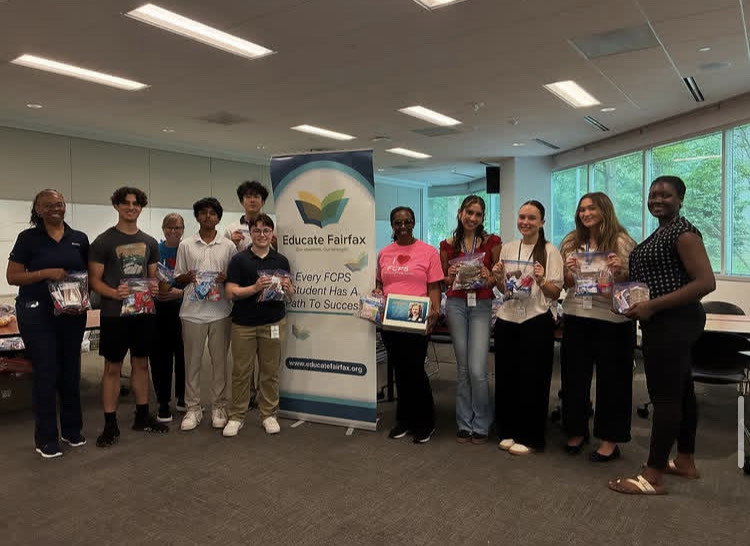

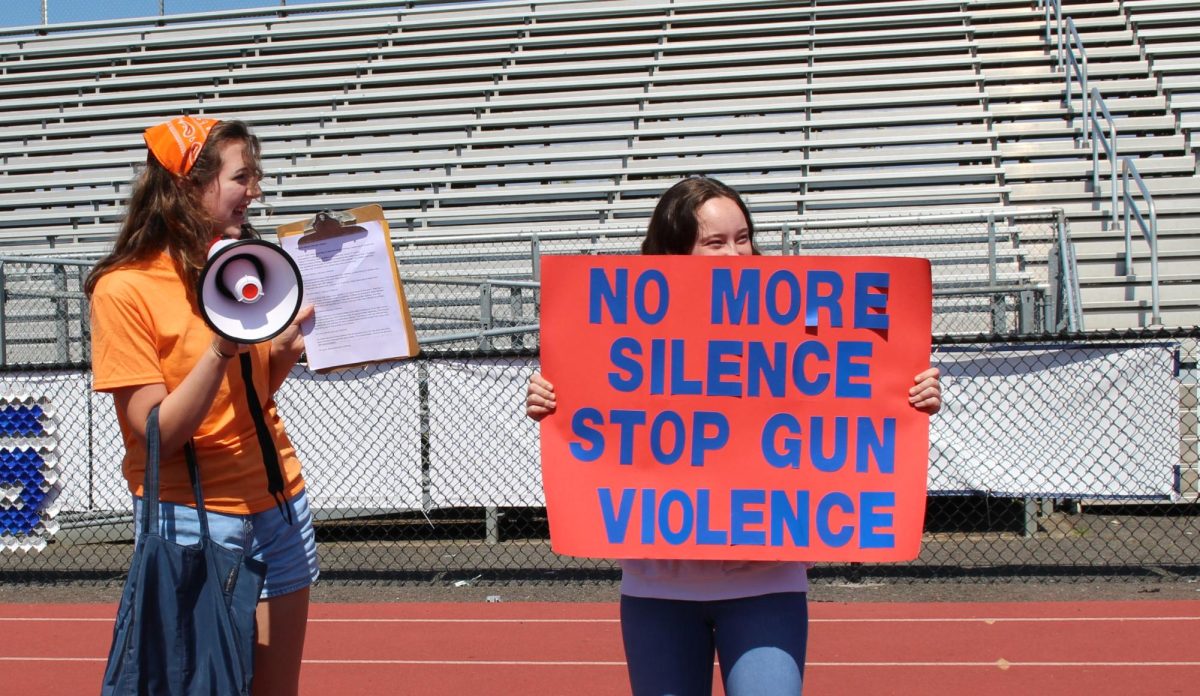

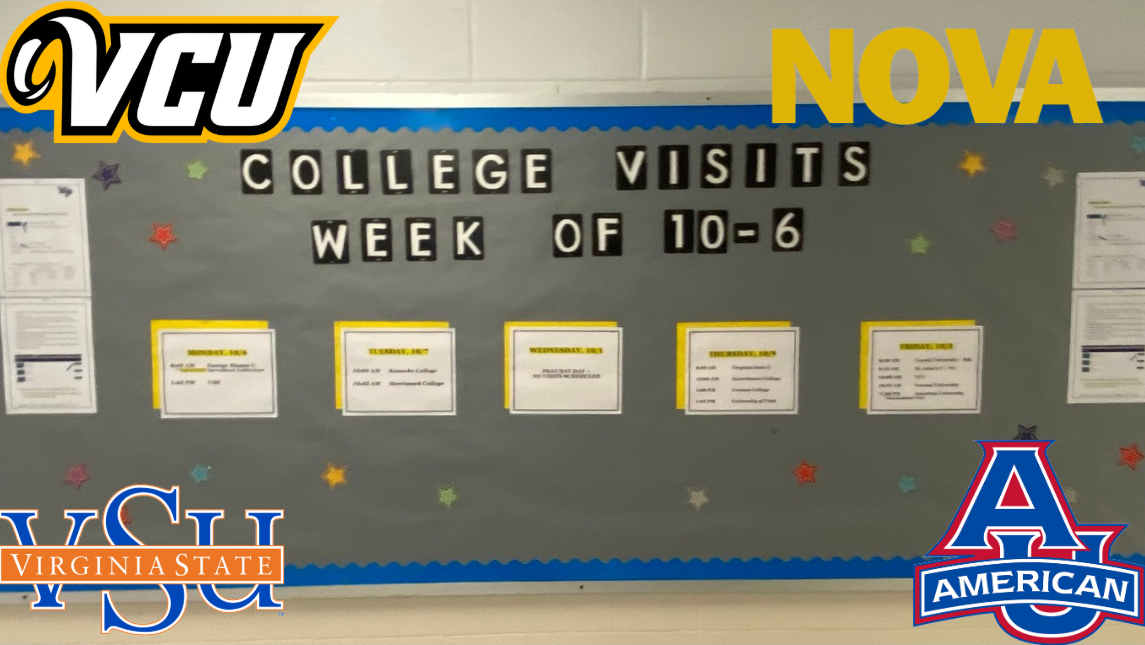
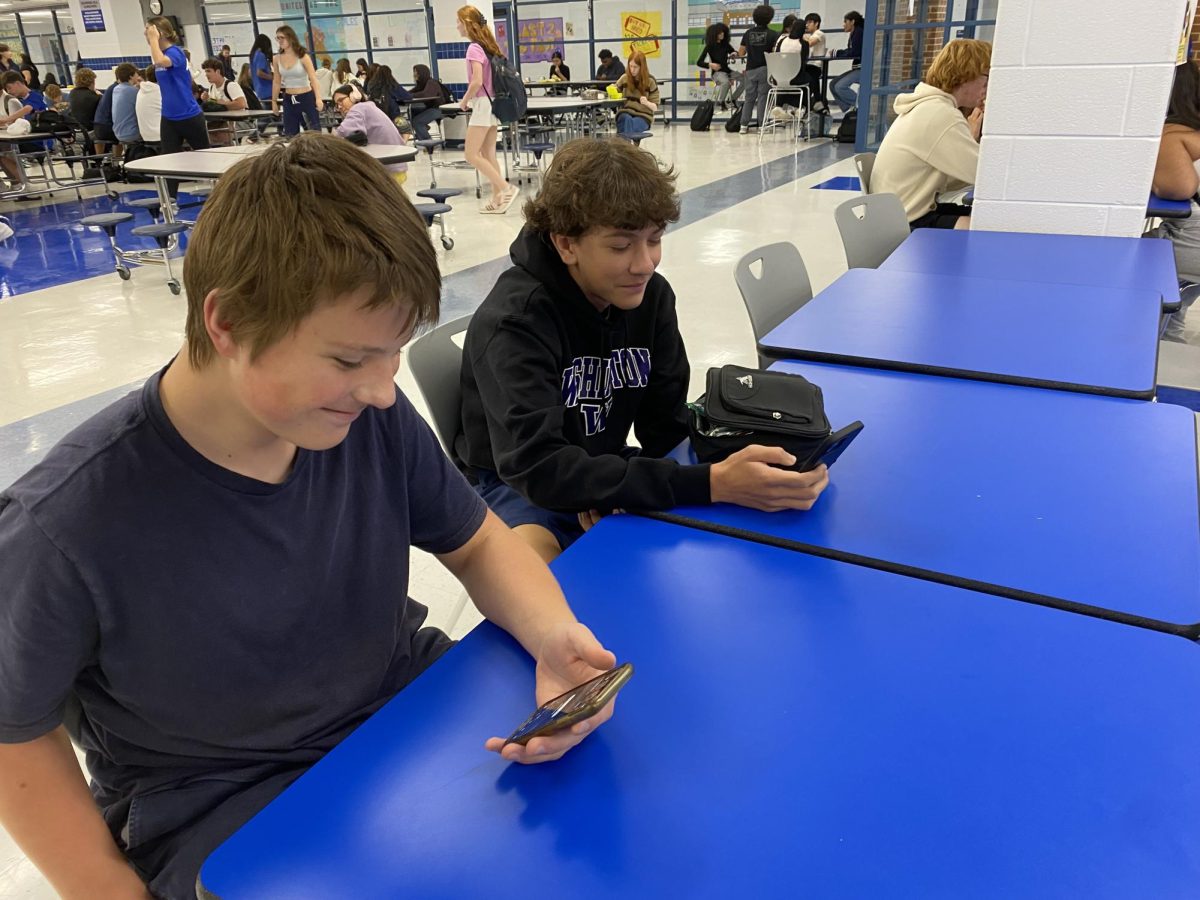


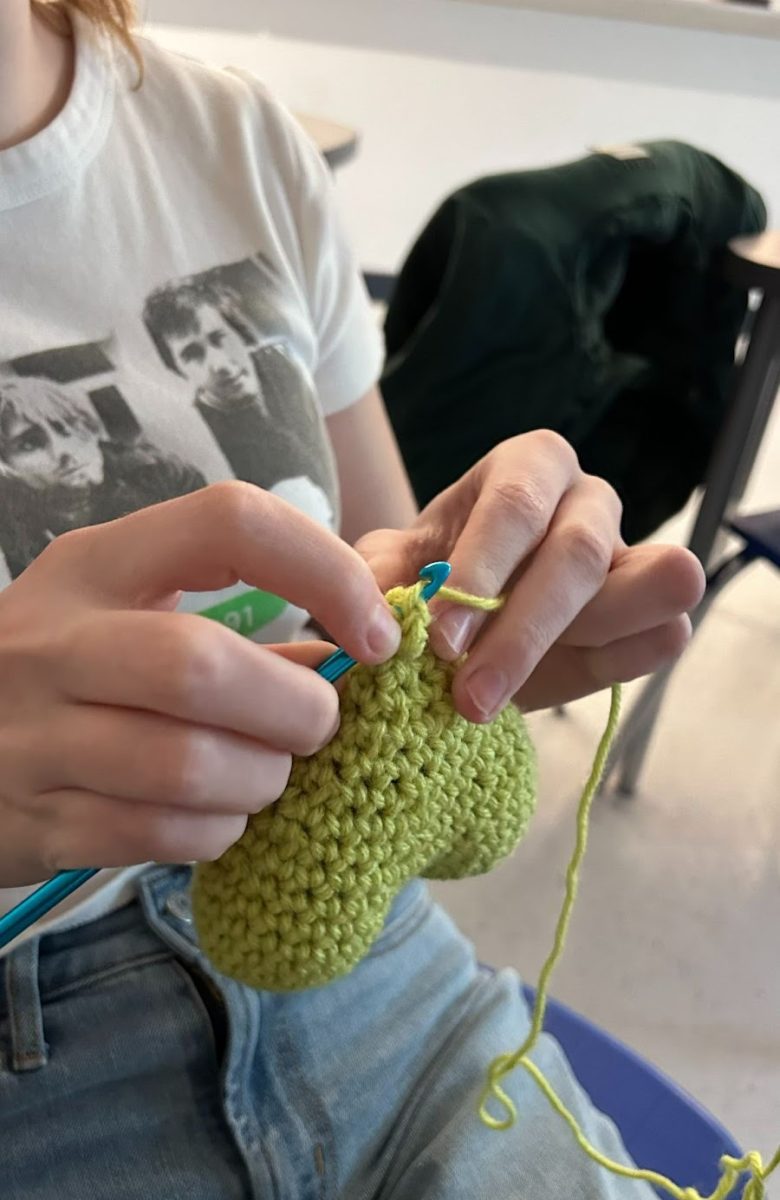











































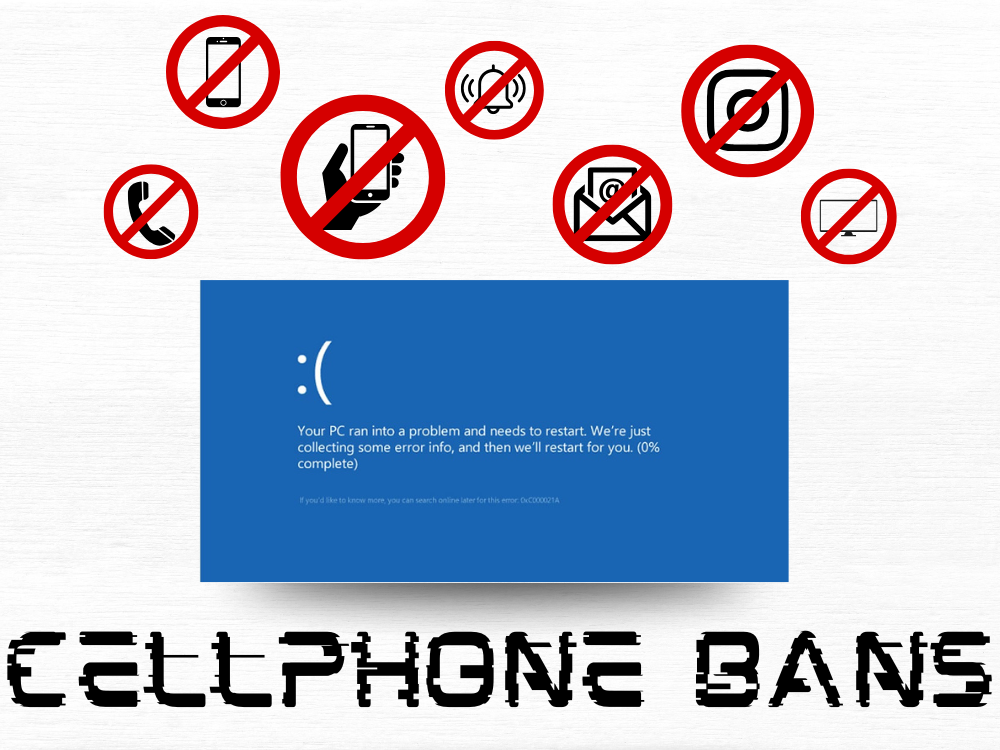

Mr. Stuecheli • Apr 9, 2025 at 9:05 AM
Outstanding work! I really enjoyed the article and it shows the viewpoints from many different walks – students, teachers, administration, and school board. It’s going to be a complicated situation. We are living in different times post-Covid.
I worked with current Justice HS Principal Sean Rolon. He’s an amazing guy. Very focused on everyone. He builds the students and staff. I’m happy to see him excelling.
The article was an easy read and I recommend it to many. Keep it up!